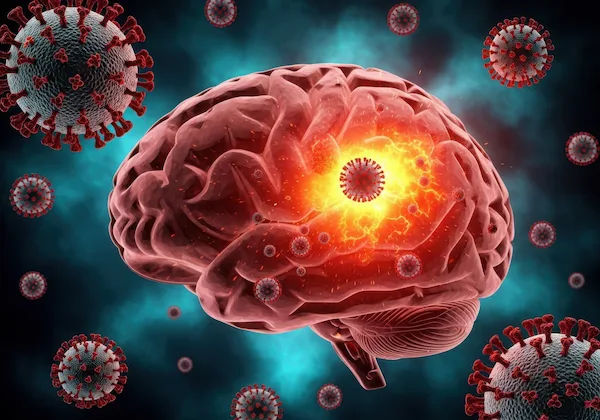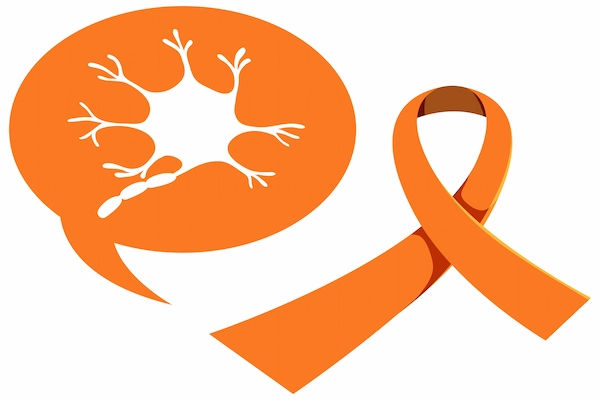Guide to Your Headache Symptom Multiple Sclerosis
Learn how headaches may relate to multiple sclerosis (MS). Explore causes, warning signs, types, and effective management strategies for MS-related headaches.


Introduction: The Complex Link Between Headaches and MS
If you're experiencing persistent headaches and have been researching neurological conditions, you may have wondered about a connection to multiple sclerosis (MS). While numbness, fatigue, and vision problems are the hallmark symptoms people associate with MS, headaches are a surprisingly common and often debilitating complaint among those living with the disease. This article delves deep into the complex relationship between headaches and MS. We'll explore whether a headache can be an early symptom, the specific types of headaches linked to MS, and the various causes, from the disease itself to its treatments. Most importantly, we'll provide practical strategies for management and guide you on when it's crucial to seek professional medical advice. Understanding this symptom is a key step in taking control of your neurological health.
Are Headaches a Common Symptom of MS?
Headaches are not traditionally listed among the classic primary symptoms of MS like optic neuritis or mobility issues. However, a growing body of evidence suggests they are far more common in people with MS than in the general population. Studies indicate that the prevalence of headaches, particularly migraines, is significantly higher in individuals with MS compared to healthy controls, with some research suggesting over 50% of MS patients experience clinically significant headaches.
This high prevalence indicates that while not a direct diagnostic tool, headaches should be considered a noteworthy comorbidity and a potential part of the MS symptom profile. If you have MS and suffer from frequent headaches, you are certainly not alone, and this symptom deserves attention from your healthcare team.
What the Research Says About MS and Headache Prevalence
A meta-analysis published in the Journal of Clinical Neuroscience reviewed multiple studies and found that the overall prevalence of headaches in MS patients was approximately 50%, with migraines being the most frequently reported type. The research points to a bidirectional relationship; not only does MS seem to increase the risk of headaches, but the presence of migraines may also be associated with a higher risk of developing MS, suggesting possible shared underlying pathological mechanisms, such as neuroinflammation.
Consult a Neurologist for the best advice
Types of Headaches Associated with Multiple Sclerosis
Not all headaches are created equal, and this holds true in the context of MS. Understanding the type of headache you're experiencing is the first step toward effective management.
Migraines and MS: A Frequent Connection
Migraines are the most commonly reported headache type in MS patients. These are often throbbing, pulsating headaches, typically on one side of the head, and can be accompanied by nausea, vomiting, and extreme sensitivity to light (photophobia) and sound (phonophobia). Some individuals may experience "migraine with aura," which involves temporary neurological symptoms before the headache begins, such as visual disturbances (seeing flashing lights or zigzag lines), tingling sensations, or speech difficulties. The location of MS lesions, especially in the brainstem and periaqueductal gray matter—areas involved in pain modulation—is often implicated in MS migraine symptoms.
Less Common Types: Tension and Cluster Headaches
- Tension-Type Headaches: These often present as a constant, dull, aching pain on both sides of the head, sometimes described as a tight band around the forehead. They can be episodic or chronic and are frequently linked to the stress and muscle stiffness that can accompany MS.
- Cluster Headaches: These are less common but extremely severe headaches that occur in cyclical patterns or clusters. They cause intense, burning, or piercing pain around one eye or on one side of the face. While a direct link to MS is less established, they can occur.
Why Does MS Cause Headaches? Unpacking the Triggers
The causes of headaches in MS are multifactorial, meaning several factors can be at play simultaneously.
The Role of MS Lesions and Brainstem Involvement
MS is characterised by inflammation and damage to the myelin sheath in the central nervous system. When this demyelination and lesion formation occur in specific parts of the brain that are involved in pain processing—such as the brainstem, thalamus, and cortex—it can disrupt normal neural pathways and trigger headache pain. This is often referred to as a headache from MS lesion activity.
Medication Side Effects: DMTs and Headaches
A common culprit for new or worsening headaches can be the very medications designed to treat MS. Certain disease-modifying therapies (DMTs), particularly interferon beta medications (e.g., Avonex, Betaseron, Rebif), are well-known for causing headaches as a frequent side effect. This is often a temporary issue that subsides as the body adjusts, but it should always be discussed with your neurologist.
Secondary Causes: The Impact of Stress and Comorbidities
Living with a chronic, unpredictable disease like MS is inherently stressful. This emotional and psychological stress is a potent trigger for both tension-type headaches and migraines. Additionally, muscle spasticity in the neck and shoulders can lead to referred pain in the head. Other common MS symptoms like poor sleep and depression are also major contributors to chronic headache disorders.
MS Headache vs. Other Headaches: Telling the Difference
It can be challenging to distinguish an MS-related headache from a common primary headache. There is no single definitive feature, but some clues may point toward a stronger link to MS:
- Onset: A new type of headache that coincides with other new neurological symptoms or an MS relapse.
- Location: Headaches that are more persistent in the back of the head (occipital region) could be related to lesions in the brainstem or cervical spine.
- Response to Medication: A headache that doesn't respond to usual over-the-counter pain relievers might warrant further investigation.
Ultimately, the difference between an MS headache and a normal headache is often blurred. The key is to track your headaches and discuss any changes in pattern, severity, or associated symptoms with your doctor.
Effective Management Strategies for MS-Related Headaches
Managing headaches in MS requires a dual approach: treating the acute pain and preventing future episodes.
Acute Treatment: Relieving the Pain Now
For occasional attacks, over-the-counter nonsteroidal anti-inflammatory drugs (NSAIDs) like ibuprofen or naproxen can be effective. For more severe migraines, prescription triptans or newer gepant medications may be used. However, it's crucial to consult your neurologist before starting any new medication, as some can interact with DMTs or other MS symptoms. Overuse of pain medication can itself lead to "medication-overuse headaches," creating a vicious cycle.
Preventive Strategies: Reducing Frequency and Severity
- Lifestyle Modifications and Trigger Tracking: Keeping a headache diary is one of the most powerful tools. Note the date, time, severity, potential triggers (e.g., specific foods, stress, lack of sleep, weather changes), and medications taken. This can help you identify and avoid your personal triggers. Regular, moderate exercise, adequate hydration, consistent sleep schedules, and mindfulness practices like yoga or meditation are also highly effective non-pharmacological interventions.
- Preventive Medications: If headaches are frequent or severe, your doctor may recommend a daily preventive medication. These can include certain antidepressants, anti-seizure drugs, or blood pressure medications, which are used off-label to reduce the frequency and intensity of headaches.
When to See a Doctor: Red Flags and Serious Concerns
While most headaches are not emergencies, certain "red flag" symptoms warrant immediate medical attention. Seek urgent care if your headache:
- Is sudden, severe, and "the worst headache of your life."
- Is accompanied by a fever, stiff neck, confusion, seizures, or double vision.
- Follows a head injury.
- Worsens significantly with coughing, sneezing, or exertion.
- Presents with new neurological symptoms like weakness, numbness, or slurred speech that are not typical for you.
If your headaches are disrupting your daily life, becoming more frequent, or not responding to your usual management strategies, it's time to consult a professional. If symptoms persist beyond two weeks, consult a doctor online with Apollo24|7 for further evaluation. They can help determine if your headaches are related to your MS, a medication side effect, or another entirely separate condition, and develop a tailored treatment plan.
Conclusion
Navigating life with Multiple Sclerosis involves understanding a wide spectrum of symptoms, and headaches are a significant part of that picture for many. While they can be frustrating and debilitating, they are also manageable. By recognising the types and triggers of MS-related headaches, you empower yourself to seek effective treatment and make informed lifestyle adjustments. Remember, your headache is a valid symptom worthy of medical attention. Don't hesitate to advocate for yourself with your healthcare team to find a management plan that works for you. A proactive approach, combining medical support and self-care, is your best strategy for reducing the impact of headaches and living a fuller life with MS. If your condition does not improve after trying these methods, book a physical visit to a doctor with Apollo24|7 to get a comprehensive evaluation and personalised care plan.
Consult a Neurologist for the best advice
Consult a Neurologist for the best advice

Dr. Aditendraditya Singh Bhati
Neurosurgeon
21 Years • MBBS(2004), DNB Neurosurgery(2014); MNAMS; Fellow Skull Base Endoscopy (Italy), Fellow Extended Skull Base ( Weill Cornell, USA), Fellow ZAP-X Radiosurgery. Member of American Association of Neurological Surgeons
Delhi
Apollo Hospitals Indraprastha, Delhi
(100+ Patients)

Dr. Ganeshgouda Majigoudra
Neurologist
10 Years • MBBS, MD ( GENERAL MEDICINE) DM (NEUROLOGY)
Bengaluru
Apollo Clinic, JP nagar, Bengaluru

Dr. E Prabhakar Sastry
General Physician/ Internal Medicine Specialist
40 Years • MD(Internal Medicine)
Manikonda Jagir
Apollo Clinic, Manikonda, Manikonda Jagir
(150+ Patients)

Dr Debnath Dwaipayan
Neurosurgeon
9 Years • MBBS, MS(Gen. Surgery), DrNB (Neurosurgery)
Delhi
Apollo Hospitals Indraprastha, Delhi

Dr. Anusha D
Neurologist
16 Years • MBBS, MD, DM (Neuro), DNB (Neuro)
Chennai
Apollo Speciality Hospitals OMR, Chennai
(125+ Patients)
Consult a Neurologist for the best advice

Dr. Aditendraditya Singh Bhati
Neurosurgeon
21 Years • MBBS(2004), DNB Neurosurgery(2014); MNAMS; Fellow Skull Base Endoscopy (Italy), Fellow Extended Skull Base ( Weill Cornell, USA), Fellow ZAP-X Radiosurgery. Member of American Association of Neurological Surgeons
Delhi
Apollo Hospitals Indraprastha, Delhi
(100+ Patients)

Dr. Ganeshgouda Majigoudra
Neurologist
10 Years • MBBS, MD ( GENERAL MEDICINE) DM (NEUROLOGY)
Bengaluru
Apollo Clinic, JP nagar, Bengaluru

Dr. E Prabhakar Sastry
General Physician/ Internal Medicine Specialist
40 Years • MD(Internal Medicine)
Manikonda Jagir
Apollo Clinic, Manikonda, Manikonda Jagir
(150+ Patients)

Dr Debnath Dwaipayan
Neurosurgeon
9 Years • MBBS, MS(Gen. Surgery), DrNB (Neurosurgery)
Delhi
Apollo Hospitals Indraprastha, Delhi

Dr. Anusha D
Neurologist
16 Years • MBBS, MD, DM (Neuro), DNB (Neuro)
Chennai
Apollo Speciality Hospitals OMR, Chennai
(125+ Patients)
More articles from Multiple Sclerosis
Frequently Asked Questions
1. Can a headache be the first sign of MS?
While it's uncommon, a new, persistent type of headache, especially if accompanied by other neurological symptoms like numbness or vision changes, can sometimes be a presenting feature of MS. However, headaches alone are rarely the only symptom.
2. What does an MS headache feel like?
There is no single feeling. Most commonly, it presents as a migraine—a throbbing pain on one side of the head with sensitivity to light/sound. It can also feel like a tension headache (a band-like pressure) or, rarely, a severe cluster headache.
3. Can an MS relapse cause a headache?
Yes, a headache can be a symptom of an MS relapse or flare-up, particularly if the new inflammatory activity (lesions) occurs in areas of the brain that process pain, such as the brainstem.
4. What is the best pain reliever for an MS headache?
This varies by individual and headache type. For mild headaches, OTC NSAIDs like ibuprofen may suffice. For migraines, prescription triptans may be needed. Always consult your doctor for a recommendation tailored to your specific health profile and medications.
5. How can I tell if my headache is from MS or my medication?
Tracking the timing is key. If your headaches began or significantly worsened soon after starting a new disease-modifying therapy (DMT), especially an interferon, the medication is a likely culprit. Discuss this pattern with your neurologist, as switching DMTs may be an option.


.webp)

